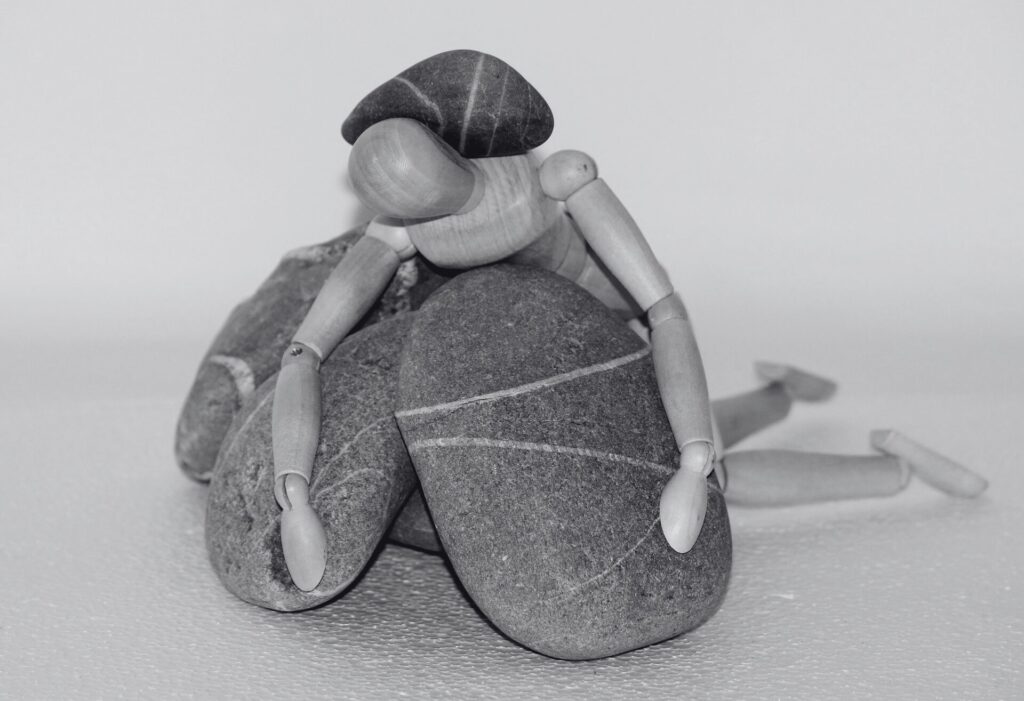
https://www.pekonsult.ee/koroona.php
https://www.arengutee.com/stressitest.html
A common manifestation of stress is when a person feels that everything necessary has not been done, but there is no time at all. Often, when acting in a situation of excessive stress, such thoughts as "I can't do it anymore", "it's too much for me", "nothing I do is useful". Do you feel that way sometimes?
Stress seems so commonplace these days that it and how to deal with it get undeservedly little attention. Action is taken only when the stress has led to a more serious illness, but the symptom should be treated, not the consequences.
Reactions to stress are individual, but excessive stress and
stress levels can lead to serious health problems. A large part of the occurrence of mental and physical health disorders is primarily associated with cumulative, acute or traumatic stress.
One of the best-known and most important scientific works on the effects of stress is the ACE study, which tried to explain how negative events in childhood affect a person's life course and health. Emotional, physical or sexual abuse, as well as emotional or physical neglect, were mapped as negative events. Domestic conditions were investigated, such as a parent's mental health disorder, addiction, violence in the family or the parent's stay in a detention facility. It was found that the more negative childhood events there were, the more likely it was to develop various difficulties later in life. For example, if there were more than four, the risk of heart disease was more than doubled, and the risk of suicide attempt was more than twenty times higher. If a person had 1-3 negative childhood events, the likelihood of alcoholism increased approximately tenfold. Based on this study, long-term and acute stress affected the development of the nervous system, the immune system, the endocrine system, and the cardiovascular system.
The effects of short-term excessive stress are usually felt in the form of various pains, such as headaches and stomachaches, but sleep disorders, rapid irritability, and difficulty concentrating are also common.
The effects of long-term excessive stress are typically anxiety disorders, insomnia, high blood pressure, a weakened immune system, digestive problems. Long-term stress promotes the development of various diseases, including depression and anxiety disorders, obesity and heart disease. Common side effects of long-term excessive stress include overeating, unhealthy diet, smoking, alcohol and drug abuse, accidents and injuries.
There are many symptoms and they can vary. For example:
– easily irritated
– headaches
– diseases that occur during holidays and weekends (susceptibility to colds is especially high)
– insomnia
– tiredness/boredom
– etc
The human body and soul can also hide stress very well, and you yourself may not even know about the existence of stress. In fact, however, it is a strong stress phenomenon. In such cases, the symptoms can be relatively vague and difficult to detect. For example:
– you can work for a very long time without showing any signs of fatigue.
– have few emotions and feelings (especially in cases where you usually react with strong irritability)
– increased consumption of alcohol, nicotine, cigarettes and other narcotic substances
– new and uncharacteristic ways of behaving
– inability to rest
– apathy
If you suffer from stress for a long time, you get used to it and stress symptoms may not manifest in the usual way. Stress still hits at some point, and unfortunately much more seriously. Just one strong shake is enough if the cap is thrown off as a result of the fermentation process.
Such stress symptoms can be very severe:
– stomach ulcers
– heart disorders
– minor illnesses (allergies, skin itching, migraine, etc.)
– serious diseases (e.g. arthritis, cancer, diabetes)
– mental problems (depression, paranoia, etc.)
The false principles created by the market economy society, that stress is an example of weakness and that it severely damages a person's chances of being successful, have actually done themselves a disservice. Stress sometimes seems like an overemphasized disease, and people tend to have a negative attitude towards problems rather than seriously dealing with the problem. Unfortunately, there is a problem and it is sad to see tired young people; hear the statistics that Estonia has the highest number of male suicides; know more and more friends and acquaintances taking antidepressants; seeing young people suffering from horrible diseases, broken relationships and unhappy children who have to grow up very young, etc.
Physical reactions:
- constant feeling of tiredness,
- frequent physical complaints,
- sleep disorders,
- changes in appetite.
Emotions:
- anxiety,
- feeling of alienation,
- desire to be alone more
- negativity/cynicism,
- depression / constant feeling of sadness,
- feeling tense,
- inability to feel joy.
Thinking:
- tiredness of constant thinking,
- compulsions,
- difficulty concentrating,
- lack of interest,
- difficulties in decision-making and setting priorities,
- rigidity of thinking,
- black and white thinking.
Behavior:
- irritability,
- blaming others,
- reluctance to initiate or complete activities,
- withdrawal,
- unwillingness to take vacations,
- "treating" yourself with health-damaging techniques,
- reckless/risky behaviour.
Values:
- doubting the basic values of life, beliefs;
- hesitations in important areas of life (profession, workplace, relationships);
- sense of danger, feeling of being a victim;
- the shattering of illusions.
Normal stress is generally related to a specific situation, event, or accident, but when stress continues for a long period of time, it can affect a person's health.Researchers have found that chronic stress increases the risk of heart disease, cancer and mental health problems. It also reduces memory capacity, sleep quality, concentration and increases the risk of mood disorders. For example, it has been found that epidemics, natural disasters, protests, climate warming and other events affecting the world significantly increase the risk of chronic stress, because these are not problems that can be solved quickly.In order to distinguish between chronic and ordinary stress, researchers have ranked the main symptoms of chronic stress:
- Difficulty concentrating at work
- Weakened immune system and frequent illnesses
- Increased consumption of alcohol or tobacco products
- Weight gain and emotional eating
- Frequent pain in the joints, muscles and neck
- A feeling of helplessness
- Difficulty making decisions and not wanting to make plans
- Skin problems such as rashes, acne or hair loss
- Decreased sex drive
Codependency
"The need to be necessary"
“You know, I've never heard him complain. I don't know how he can do all this? Why does he accept this? What does she even find in this man?
It is usually not understood why some apparently good and strong woman has chosen an addict as a partner or is even in an abusive relationship, and does not put an end to it. The explanation for the mystery of such devoted affection can usually be found in childhood experiences. Most of us become adults and continue in the role we assumed in the family we came from. For many women, this role often meant sacrificing their own needs in order to fulfill the wishes of other family members. Maybe circumstances forced us to grow up too fast, because we had to take on the responsibilities of an adult too early, too immaturely, because mom or dad was too emotionally or physically ill to fulfill their parental role. Perhaps one parent had died or separated and we tried to fill the void by helping to care for our siblings as well as the single parent. We could live with both parents, but because one might be angry or frustrated or unhappy and the other wouldn't deal with it, we became the confidant who had to listen to the details of the relationship that we couldn't deal with emotionally. Although we were too immature for the task, we ended up protecting them. We learned too early and deeply how to take care of everyone but ourselves. Our own needs for love, attention, care and security were not met. Having learned to deny our own longing for care, we grew up looking for ways to do what we had become adept at: worrying about someone else's wants and demands rather than acknowledging our own fear, pain, and unmet needs. Fear of loneliness, fear of not being loved, fear of being worthless, fear of being ignored or abandoned or destroyed. So we help, keep helping and hope that our fear will go away and our reward will be love.


